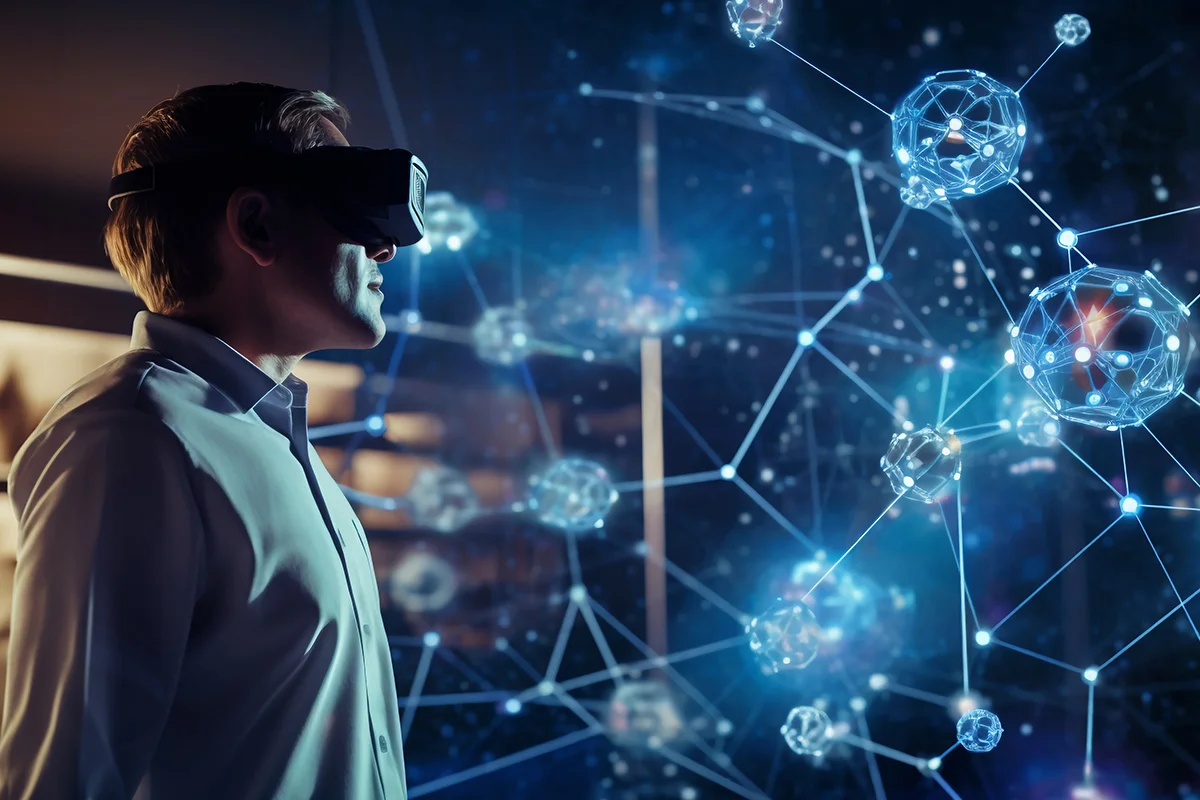Artificial intelligence (AI) has revolutionized various aspects of our lives, from the way we interact with technology to the way we conduct business and make decisions. While AI’s impact has been profound, it is just the beginning of a technological revolution that promises to transform society in ways we can only begin to imagine.
As AI continues to evolve, several emerging technologies are poised to shape the future of technology, each with its unique potential to impact our lives. Here are some of the key areas that are expected to play significant roles in the years to come.
Extended Reality (XR)
XR encompasses augmented reality (AR), virtual reality (VR), and mixed reality (MR), technologies that blur the lines between the physical and digital worlds. AR overlays digital elements onto the real world, while VR immerses users in a fully digital environment. MR combines both AR and VR, creating a hybrid experience where digital objects interact with the physical world.
XR has the potential to revolutionize a wide range of industries, from healthcare and education to manufacturing and entertainment. In healthcare, AR and VR can be used for surgical training, patient rehabilitation, and immersive therapy. In education, XR can create interactive learning experiences, allowing students to explore virtual worlds and manipulate 3D objects. In manufacturing, AR can provide real-time instructions and guidance to workers, while VR can be used for design prototyping and virtual product testing.
Blockchain and Decentralized Technologies
Blockchain, the technology underlying cryptocurrencies like Bitcoin, is gaining recognition for its potential beyond the financial realm. Its decentralized and secure nature makes it well-suited for applications in supply chain management, identity management, and secure data storage.
Decentralized technologies, in general, aim to reduce reliance on centralized authorities and intermediaries. This can lead to increased transparency, efficiency, and security in various sectors. For instance, decentralized applications (DApps) are being developed to provide alternatives to traditional services like banking, social media, and file sharing, often with a focus on user privacy and control.
6G Technology
The next generation of wireless technology, 6G, is expected to provide significantly faster data speeds, lower latency, and broader coverage compared to its predecessors. This will enable the development of new applications that require real-time data exchange and ultra-reliable connectivity.
6G will have a profound impact on various industries, including healthcare, transportation, and manufacturing. It will facilitate the widespread adoption of technologies like autonomous vehicles, immersive telepresence, and real-time data-driven decision-making.
Quantum Computing
Quantum computing harnesses the principles of quantum mechanics to perform calculations that are impossible for classical computers. This has the potential to revolutionize fields like drug discovery, materials science, and cryptography.
Quantum computing is still in its early stages, but the potential benefits are immense. For instance, it could lead to the development of new drugs and materials with unprecedented properties, as well as break modern encryption algorithms.
Biotechnology and Bioinformatics
Advances in biotechnology and bioinformatics are leading to breakthroughs in personalized medicine, gene editing, and synthetic biology. These technologies have the potential to revolutionize healthcare and agriculture.
Personalized medicine, which tailors treatments to an individual’s genetic makeup, is already transforming healthcare. Gene editing, the ability to modify DNA, holds promise for correcting genetic disorders and treating diseases like cancer. Synthetic biology, the engineering of biological systems, could lead to the development of new drugs, biofuels, and sustainable materials.
Elon Musk’s Neuralink is a biotechnology company that is developing a brain-computer interface (BCI) with the goal of enabling seamless communication between the human brain and machines. This technology holds immense potential to revolutionize various aspects of human life, from healthcare to communication to entertainment.
Robotics and Automation
The integration of AI with robotics is expanding the capabilities of automation. Robots are becoming more versatile, with applications ranging from manufacturing and logistics to healthcare and service industries.
AI-powered robots can learn from experience, adapt to changing environments, and collaborate with humans. This will lead to a new era of automation, where robots take on a wider range of tasks and work alongside humans to enhance productivity and efficiency.
Edge Computing
Edge computing involves processing data closer to the source of generation rather than relying on a centralized cloud. This can reduce latency and enhance real-time processing, making it essential for applications like IoT devices and autonomous vehicles.
Edge computing is particularly relevant in scenarios where low latency and offline operation are critical. It will play a crucial role in enabling real-time decision-making, predictive maintenance, and autonomous operations in various industries.
Cybersecurity Advances
As technology advances, so do the challenges related to cybersecurity. New methods and technologies, such as AI-driven cybersecurity solutions and decentralized identity systems, are emerging to address these challenges.
AI can be used to analyze vast amounts of data to identify and respond to cyber threats in real-time. Decentralized identity systems can provide secure and privacy-preserving ways for individuals and organizations to manage their digital identities, reducing the risk of cyberattacks.
Future Employment Impact
While these technological advancements bring exciting possibilities, they also raise concerns about the future of employment. As automation and AI continue to advance, certain job sectors may face significant transformations. Routine and manual tasks are more likely to be automated, impacting industries such as manufacturing and routine data processing.
On the flip side, the demand for skilled professionals in areas related to these emerging technologies is expected to rise. Jobs in AI development, cybersecurity, biotechnology, and XR content creation are likely to be in high demand. However, this shift emphasizes the importance of ongoing education and upskilling to ensure the workforce is prepared for the evolving job market.
Keep watching our YouTube Channel ‘DNP INDIA’. Also, please subscribe and follow us on FACEBOOK, INSTAGRAM, and TWITTER












